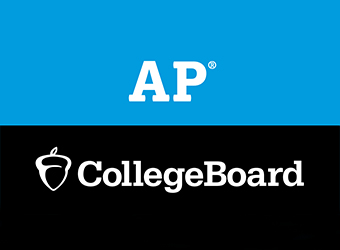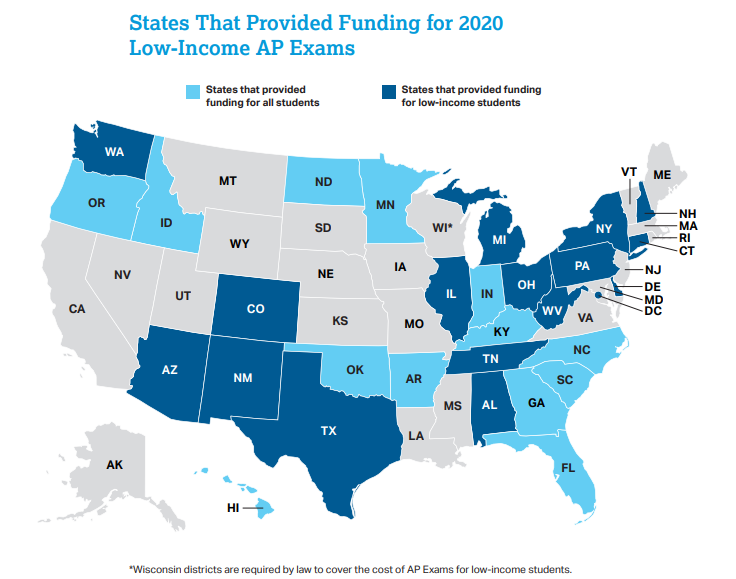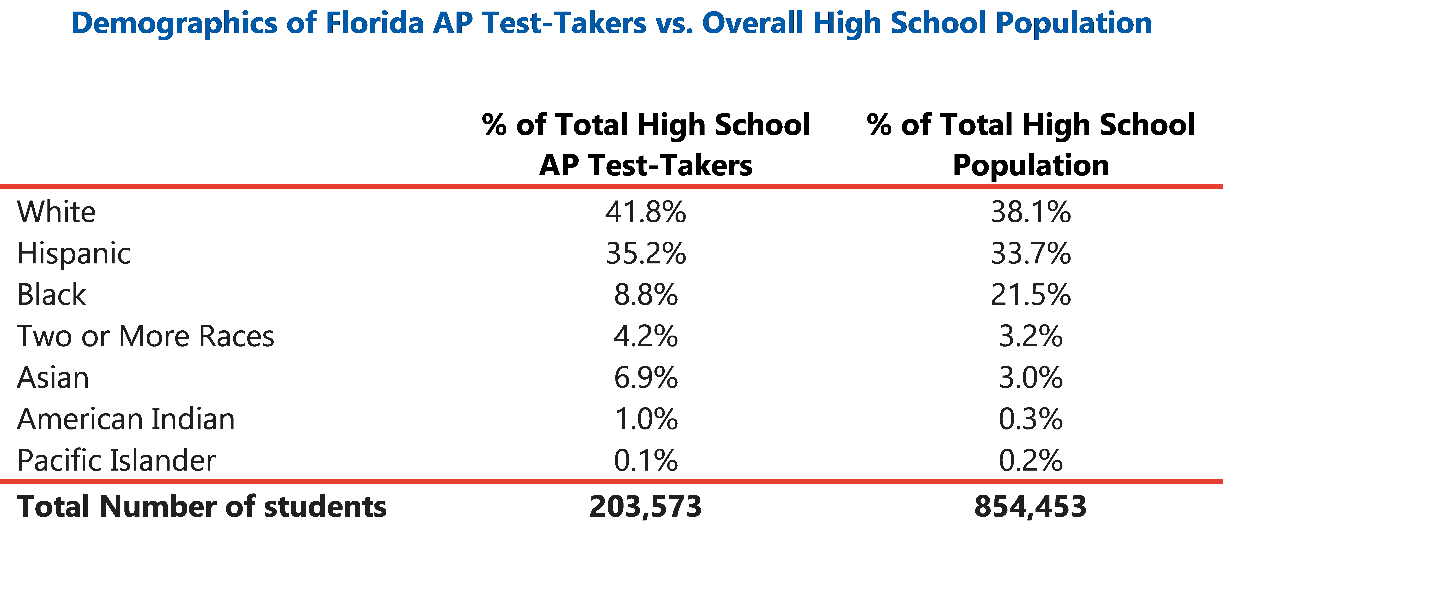The College Board’s recently released annual Advanced Placement Cohort Data Report finds Florida is #2 in the nation for successful Advanced Placement (AP) performance.
Enrollment in AP courses has continued to expand over the last decade. Despite the COVID-19 pandemic, 38.3% of U.S. public high school graduates and 56% of Florida public high school graduates took at least one AP exam in 2020. Nearly 10 percentage points higher than the national average, 34.2% of Florida students scored a 3 or higher – second only to Connecticut. Florida’s student success has grown with time — in 2010, 21.6% of Florida AP test-takers scored a 3 or higher.
For AP tests, students are scored on a 5-point scale, and a 3 or above represents a passing grade. Many colleges and universities award college credit to students who score a 3 or above, but it depends on the specific institution. According to the College Board, thanks to their AP scores, Florida students earned 691,293 potential college credits and saved $146,782,243 in potential tuition and fees.
By taking AP exams, Florida students engage in rigorous, higher-level courses and get a head start in college. The test Florida students did best in was Spanish Language and Culture – 91.9% of test-takers passed, and almost half of those students received a 5. Florida students also did well in Calculus AB, with 57.5% passing the challenging exam. Yet out of the three most popular tests — Human Geography, US History, and World History (Modern) — most students did not pass. However, research shows that even when students take an AP exam but earn a low score (1 or 2), they still tend to attend more selective institutions and are more likely to return for their second year of college than students who do not take any AP exams. This suggests that even if students don’t pass, participation in more rigorous courses and preparation for the exam may better prepare students for college-level classes.
Ensuring cost is not a barrier to low-income students, Florida is one of 12 states that provides funding for public school students to take the AP exam. The report makes the case that states should look to Florida and other states who cover fees for students. This funding has helped to narrow equity gaps in access.
However, even as access has expanded, it is important to look at which students are currently accessing AP classes.
In the Florida-specific data, there is a clear equity gap for Black students. While about 22% of the high schoolers in 2019-20 identified as Black, Black students represented only about 9% of total AP exam takers. In comparison, Hispanic students are well represented in AP-test takers: they represent 36% of test-takers and 34% of Florida’s high school students. White and Asian students are overrepresented in AP test-takers.
The research is clear. Students who take AP courses are more likely to go to college, do well in college, and graduate from college at higher rates. For students who earn a 3, 4, or 5 on an AP Exam, the benefits are even greater as higher AP scores are associated with stronger college grades. This means that access to AP courses, and support for success in those courses, is an essential component in making sure more Florida students succeed in their chosen higher education programs and get the degrees needed to thrive in today’s economy.
RELATED ARTICLES:
Learn about the Talent Strong Florida campaign
New Florida Affordability profile released by the Southern Regional Education Board



